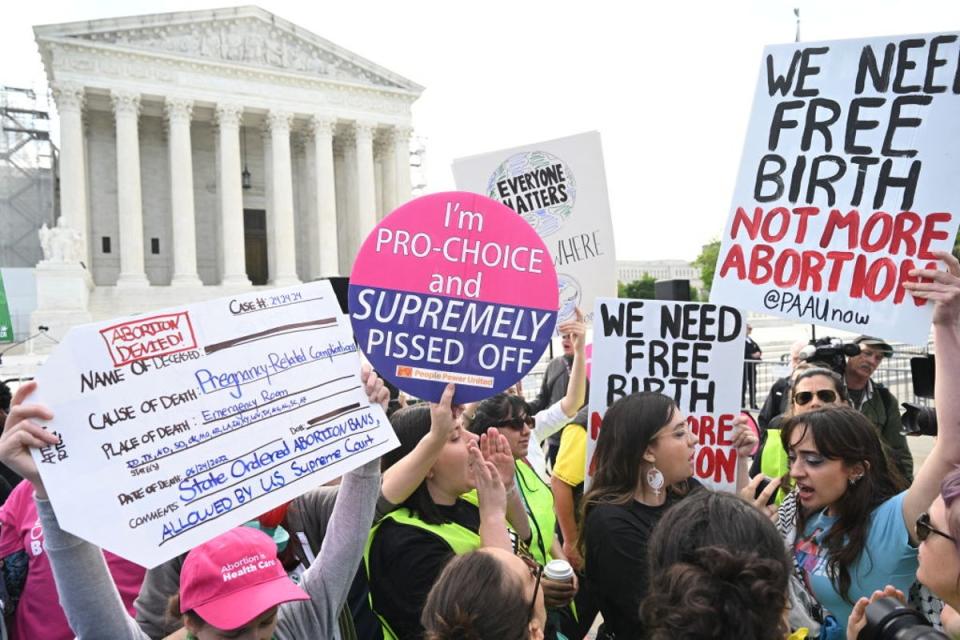Abortion advocates warn of ‘chaos and confusion’ in the wake of the Supreme Court’s Idaho ruling
Abortion advocates tempered excitement over the Supreme Court ruling that allowed hospitals to perform abortions in Idaho and instead warned about “chaos and confusion” for pregnant families and health care providers.
Idaho’s harsh ban only allows pregnant people to get the procedure in the case of preventing death, not severe health complications. The government argued the ban should not take precedence over a federal law, which requires hospitals to provide stabilizing treatment for patients with emergency medical conditions.
“Today’s decision is not a victory for pregnant patients in Idaho. It is delay,” Supreme Court Justice Ketanji Brown Jackson wrote in the 6-3 majority decision. “While this court dawdles and the country waits, pregnant people experiencing emergency medical conditions remain in a precarious position, as their doctors are kept in the dark about what the law requires.”
Abortion advocates echoed the sentiment, underscoring the need for further clarification on the right to an abortion in Idaho and across the country.
Dr. Raegan McDonald-Mosley, an OBGYN and the CEO of the nonprofit Power to Decide, issued a statement, claiming the ruling “continues the chaos and confusion that has endangered the lives of far too many people living in states where abortion is banned or severely restricted.”

“I fear today’s decision will not provide the needed clarity to ensure that health care providers across the country feel safe providing the standard of care every pregnant person seeking emergency medical services deserves,” she said.
Idaho providers even told the court their patients had to be airlifted out of their home state to access the necessary care under the state’s strict ban.
Both pregnant people and health providers “need clarity right now,” said Nancy Northup, the president and CEO of the Center for Reproductive Rights in a statement.
The court delayed the decision on “whether states with abortion bans can override the federal law requirement that hospitals must provide abortion care to patients in the throes of life-threatening pregnancy complications,” she continued. “We are relieved for the moment, but hardly celebrating.”
The president and CEO of Planned Parenthood Federation of America Alexis McGill Johnson called Wednesday’s decision “unconscionable.”

The Supreme Court had the opportunity “to make clear that the federal Emergency Medical Treatment and Active Labor Act] law protects pregnant patients’ access to emergency abortion care in every state,” she said. “Instead, the court has kicked the can down the road, leaving access to emergency care for pregnant people across the country under threat.”
Danielle White, a lawyer for Heartbeat International, similarly remarked that the decision “leaves us with more questions than answers.”
Idaho is one of 14 states with a total abortion ban. The vague language in these bans have sparked lawsuits in many of these states seeking clarity on when doctors are allowed to act, including in Tennessee.
The lawsuit in Tennessee, brought by seven people who suffered severe pregnancy complications and two doctors, states that providers didn’t perform abortions because they “fear the penalties imposed by that ban.” The panel of judges in that case have not yet ruled.
The consequences of these harsh bans are nothing short of life-altering for some families.
A Tennessee woman, who was denied an abortion under the state’s ban, told The Independent in May that she lost an ovary, a fallopian tube and her fertility as a result of state’s law.


